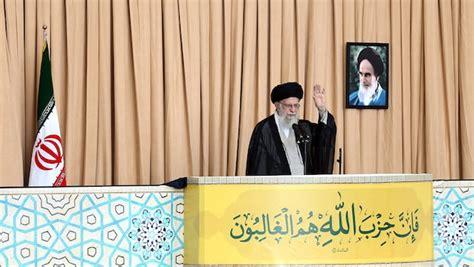
Iran’s Khamenei calls Hezbollah Lebanon’s ‘strongest defender’ after Lebanese PM pushes for disarming group
On the heels of Lebanese Prime Minister Najib Mikati’s de facto call for Hezbollah to disarm, Iran’s Supreme Leader Ayatollah Ali Khamenei on Thursday (October 23) praised the terrorist group that his country backs as Lebanon’s best defence against Israel.
Khamenei described Hezbollah as “the strongest defender of Lebanon” and the country’s “strongest shield against the greed of the Zionist regime,” accusing Israel of seeking Lebanon’s disintegration.
His statement comes as Israel has intensified its military campaign against Hezbollah, launching airstrikes on its strongholds around Beirut and ground operations in southern Lebanon since September 23.
At least 1,552 people have been killed in Lebanon during the conflict, according to an AFP count based on official sources, while the United Nations reports that around 800,000 people have been displaced.
Khamenei’s remarks also followed Lebanese Prime Minister Mikati’s statement at a Lebanon aid conference in Paris, where he called for disarming all groups in the country except for the state and the Lebanese army. “Lebanese authorities must deploy over all Lebanese territory, and weapons should be carried only by the state and the Lebanese army,” Mikati said.
Although he did not name Hezbollah directly, his comments were widely seen as targeting the group, which remains the only armed faction that did not lay down its weapons after the Lebanese Civil War ended in 1990.
Hezbollah has played a significant role in Lebanon’s politics and military since the war and continues to maintain a strong presence, bolstered by Iranian support. Tehran has long championed Hezbollah as a pillar of its foreign policy in the region, especially in its stance against Israel.
Khamenei’s statement also came after Hezbollah confirmed the death of senior leader Hashem Safieddine, who had been expected to succeed Hassan Nasrallah as the group’s leader. Safieddine and Nasrallah were killed in separate Israeli bombings.
Iran has positioned itself as a key supporter of Hezbollah since the 1979 Islamic Revolution, making the Palestinian cause and opposition to Israel central to its foreign policy. Tehran does not recognize Israel, which it refers to as a “Zionist entity.”
The conflict in Lebanon has escalated as Israel seeks to weaken Hezbollah, with both nations entrenched in a protracted struggle.
Source » firstpost.com





